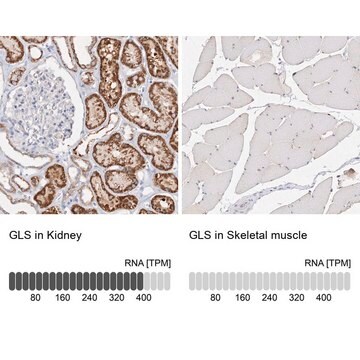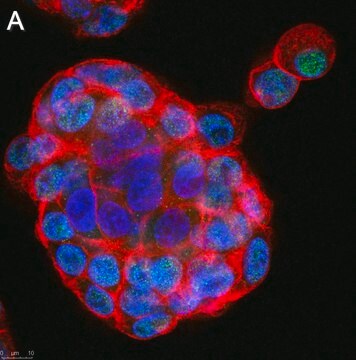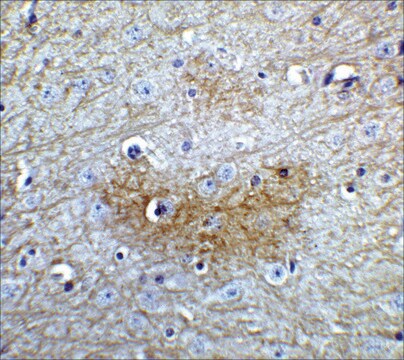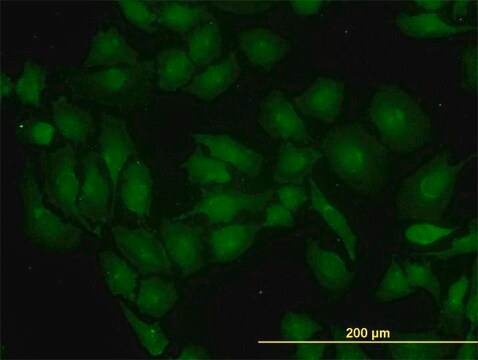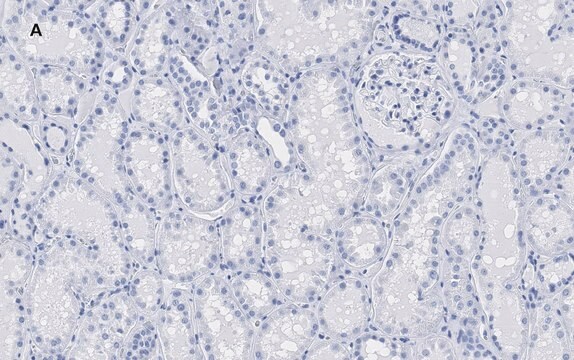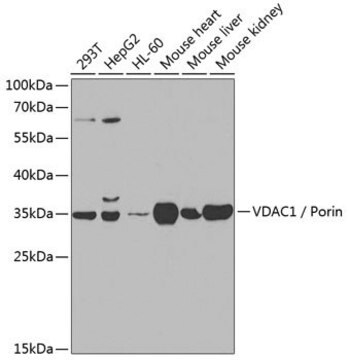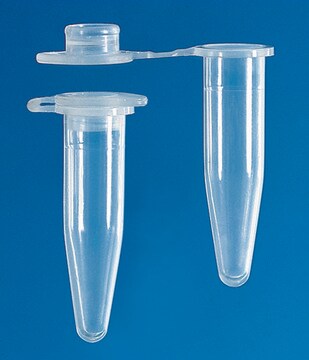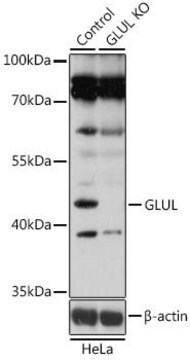ZRB1798
Anti-GLS Antibody, clone 1D16 ZooMAb® Rabbit Monoclonal

recombinant, expressed in HEK 293 cells
About This Item
Recommended Products
biological source
rabbit
Quality Level
recombinant
expressed in HEK 293 cells
conjugate
unconjugated
antibody form
purified antibody
antibody product type
primary antibodies
clone
1D16, recombinant monoclonal
description
1D16 Clone
product line
ZooMAb® learn more
form
lyophilized
mol wt
calculated mol wt 73.46 kDa
observed mol wt ~60 kDa
purified by
using Protein A
species reactivity
rat, human, mouse
packaging
antibody small pack of 25 μL
greener alternative product characteristics
Waste Prevention
Designing Safer Chemicals
Design for Energy Efficiency
Learn more about the Principles of Green Chemistry.
enhanced validation
recombinant expression
Learn more about Antibody Enhanced Validation
sustainability
Greener Alternative Product
technique(s)
affinity binding assay: suitable
immunocytochemistry: suitable
immunohistochemistry (formalin-fixed, paraffin-embedded sections): suitable
western blot: suitable
isotype
IgG
epitope sequence
N-terminal
Protein ID accession no.
UniProt accession no.
greener alternative category
, Aligned
shipped in
ambient
storage temp.
2-8°C
target post-translational modification
unmodified
Gene Information
human ... GLS(2744)
General description
Specificity
Immunogen
Application
Evaluated by Western Blotting in Rat brain tissue lysate.
Western Blotting Analysis: A 1:10,000 dilution of this antibody detected GLS in Rat brain tissue lysate.
Tested applications
Western Blotting Analysis: A 1:10,000 dilution from a representative lot detected GLS in lysates from Mouse brain tissue and from PC12, SH-SY5Y, and HepG2 cells.
Affinity Binding Assay:: A representative lot of this antibody bound GLS with a KD of 2.4 x 10-6 in an affinity binding assay.
Immunocytochemistry Analysis: A 1:1,000 dilution from a representative lot detected GLS in SH-SY5Y cells.
Immunohistochemistry (Paraffin) Analysis: A 1:1,000 dilution from a representative lot detected GLS in human kidney tissue sections.
Note: Actual optimal working dilutions must be determined by end user as specimens, and experimental conditions may vary with the end user
Target description
Physical form
Reconstitution
Storage and Stability
Legal Information
Disclaimer
Not finding the right product?
Try our Product Selector Tool.
Storage Class
11 - Combustible Solids
wgk_germany
WGK 1
flash_point_f
Not applicable
flash_point_c
Not applicable
Certificates of Analysis (COA)
Search for Certificates of Analysis (COA) by entering the products Lot/Batch Number. Lot and Batch Numbers can be found on a product’s label following the words ‘Lot’ or ‘Batch’.
Already Own This Product?
Find documentation for the products that you have recently purchased in the Document Library.
Articles
Learn about the hallmarks of cancer and find reliable ZooMAb® recombinant antibodies to study them, conveniently organized by cancer hallmark.
Our team of scientists has experience in all areas of research including Life Science, Material Science, Chemical Synthesis, Chromatography, Analytical and many others.
Contact Technical Service